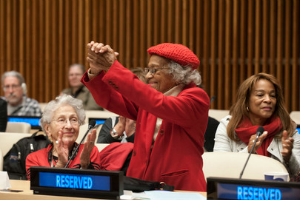In accordance with the modalities for the third review and appraisal cycle, Regional Commissions have been requested to continue to facilitate the review and appraisal exercise at the regional level, including through consultation with relevant regional bodies, as appropriate, by, inter alia:
- Providing assistance to Member States, upon request, in the organization of their national review and appraisal exercises;
- Organizing regional review meetings;
- Using an inclusive and coordinated approach in relation to the participation of civil society in the planning and evaluation processes of the review and appraisal exercise;
- Promoting networking and the sharing of information and experiences;
- Providing an analysis of the main findings, identifying key priority action areas and good practices and suggesting policy responses by 2017.
Regional Review Reports:
- Economic Commission for Africa (ECA)
- Economic Commission for Europe (ECE)
- Economic Commission for Latin America and the Caribbean (ECLAC): Report 1 | Report 2
- Economic and Social Commission for Asia and the Pacific (ESCAP)
- Economic and Social Commission for Western Asia (ESCWA)
Processes at the regional level:
[accordion clicktoclose="true"][accordion-item title="Economic Commission for Africa (ECA)"] 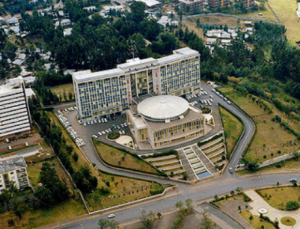 The Economic Commission for Africa (ECA) undertook research activities on ageing and development in small island developing States in Africa as part of a field project on the demographic dividend in Africa. The research was built on findings and recommendations of the 2013 Africa regional review of the Programme of Action of the International Conference on Population and Development, as well as on the report by ECA on the second review and appraisal of the implementation of the Madrid Plan of Action. ECA seeks to harmonize and coordinate the efforts of partnerships, programmes and specialized agencies through the Regional Coordination Mechanism for Africa, for which it serves as the secretariat, towards enhanced inter-agency arrangements regarding older persons in the regional economic communities and in its member States. In January 2016, the Protocol to the African Charter on Human and Peoples’ Rights on the Rights of Older Persons in Africa was adopted by the Assembly of the African Union at its twenty-sixth ordinary session. The ratification of the Protocol is anticipated to increase awareness of the role of Governments in implementing the Sustainable Development Goals that are most relevant to older persons. ECA has developed a survey for Member States covering all areas of the Plan of Action, supplemented with questions regarding sources of data on older persons. The Commission is further cooperating with local affiliates of the civil society organization HelpAge International in 15 African countries in the collection of qualitative information from older persons themselves. A technical steering committee was established to coordinate the review and appraisal process, set the guidelines, identify the tools needed and disseminate the questionnaire to focal points in the selected member States. ECA plans to prepare an analytical report on the issues faced by older persons in Africa, highlighting the nexus between those issues and the Goals. [/accordion-item][accordion clicktoclose="true"][accordion-item title=" Economic Commission for Europe (ECE)"]
The Economic Commission for Africa (ECA) undertook research activities on ageing and development in small island developing States in Africa as part of a field project on the demographic dividend in Africa. The research was built on findings and recommendations of the 2013 Africa regional review of the Programme of Action of the International Conference on Population and Development, as well as on the report by ECA on the second review and appraisal of the implementation of the Madrid Plan of Action. ECA seeks to harmonize and coordinate the efforts of partnerships, programmes and specialized agencies through the Regional Coordination Mechanism for Africa, for which it serves as the secretariat, towards enhanced inter-agency arrangements regarding older persons in the regional economic communities and in its member States. In January 2016, the Protocol to the African Charter on Human and Peoples’ Rights on the Rights of Older Persons in Africa was adopted by the Assembly of the African Union at its twenty-sixth ordinary session. The ratification of the Protocol is anticipated to increase awareness of the role of Governments in implementing the Sustainable Development Goals that are most relevant to older persons. ECA has developed a survey for Member States covering all areas of the Plan of Action, supplemented with questions regarding sources of data on older persons. The Commission is further cooperating with local affiliates of the civil society organization HelpAge International in 15 African countries in the collection of qualitative information from older persons themselves. A technical steering committee was established to coordinate the review and appraisal process, set the guidelines, identify the tools needed and disseminate the questionnaire to focal points in the selected member States. ECA plans to prepare an analytical report on the issues faced by older persons in Africa, highlighting the nexus between those issues and the Goals. [/accordion-item][accordion clicktoclose="true"][accordion-item title=" Economic Commission for Europe (ECE)"]
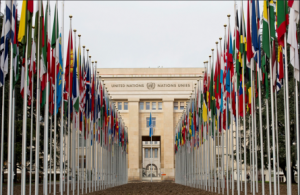 The third cycle of review and appraisal of the Madrid Plan of Action was launched in May 2015 by the Economic Commission for Europe (ECE) with the issuance of guidelines for the preparation of national reports over the course of 2016. The guidelines were prepared by the Bureau of the Commission’s Working Group on Ageing, together with the secretariat of ECE, and suggested that the national reports be structured around the four main goals of the 2012 Vienna Ministerial Declaration. The guidelines included a list of 22 suggested active ageing indicators, which were initially selected by the expert group on the Active Ageing Index in order to reflect the outcomes of ageing policies and to measure the untapped potential of older people. Two capacity-building workshops were held to address data gaps with respect to active ageing indicators. The first workshop was held in Geneva in November 2015, and the second, a regional capacity-development workshop, was held in Minsk in June 2016 and hosted by the National Statistical Committee of Belarus. ECE plans to prepare a synthesis report based on the reports received from its member States that outlines major trends in the region, identifies key priority action areas and suggests policy responses. The synthesis report will be launched at the Ministerial Conference on Ageing, to be held in Lisbon in September 2017, on the theme “A sustainable society for all ages: realizing the potential of living longer”. For up-to-date information on the third cycle (MIPAA+15) in UNECE, click here.
The third cycle of review and appraisal of the Madrid Plan of Action was launched in May 2015 by the Economic Commission for Europe (ECE) with the issuance of guidelines for the preparation of national reports over the course of 2016. The guidelines were prepared by the Bureau of the Commission’s Working Group on Ageing, together with the secretariat of ECE, and suggested that the national reports be structured around the four main goals of the 2012 Vienna Ministerial Declaration. The guidelines included a list of 22 suggested active ageing indicators, which were initially selected by the expert group on the Active Ageing Index in order to reflect the outcomes of ageing policies and to measure the untapped potential of older people. Two capacity-building workshops were held to address data gaps with respect to active ageing indicators. The first workshop was held in Geneva in November 2015, and the second, a regional capacity-development workshop, was held in Minsk in June 2016 and hosted by the National Statistical Committee of Belarus. ECE plans to prepare a synthesis report based on the reports received from its member States that outlines major trends in the region, identifies key priority action areas and suggests policy responses. The synthesis report will be launched at the Ministerial Conference on Ageing, to be held in Lisbon in September 2017, on the theme “A sustainable society for all ages: realizing the potential of living longer”. For up-to-date information on the third cycle (MIPAA+15) in UNECE, click here.
[/accordion-item] [accordion clicktoclose="true"][accordion-item title="Economic Commission for Latin America and the Caribbean (ECLAC)"]
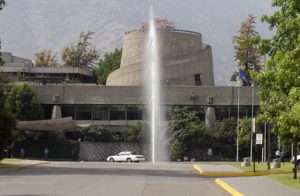 The Economic Commission for Latin America and the Caribbean (ECLAC) is providing technical assistance to member States in the region that have requested help in undertaking their national review processes regarding the Madrid Plan of Action and the regional plan as expressed in the San José Charter on the Rights of Older Persons in Latin America and the Caribbean. ECLAC will also organize the Fourth Regional Intergovernmental Conference on Ageing in Latin America and the Caribbean, to be held in Paraguay in 2017. To support policy development on ageing in the region since the last review and appraisal, the ECLAC office in Port of Spain organized a conference on ageing, elder abuse and the rights of older people, held in Roseau on 30 November and 1 December 2015. In addition, ECLAC published a range of material on issues related to older persons, including thematic reports on their care needs; an evaluation of policy guidelines and access to credit by older persons; a publication on ageing in the Caribbean and the rights of older persons; a book entitled “Autonomy and dignity in old age: theory and practice of policies on the rights of older people” and another on the theme of ageing and public institutions in Latin America and the Caribbean; as well as an online bulletin on ageing and development. In June 2016, ECLAC held a technical seminar on public institutions and ageing, with the goal of examining existing institutional alternatives in the region and deepening the analysis of the constraints and challenges facing government institutions dealing with ageing from a human rights perspective. In collaboration with the Senate of Chile and the country’s National Service for Older Persons, ECLAC held an international seminar in July 2016 on the protection of the human rights of older persons in Latin America and the Caribbean, which involved more than 500 older persons and experts from Chile, Costa Rica, Cuba and Mexico. ECLAC organized the second follow-up meeting on the San José Charter, in partnership with the National Service for Older Persons, from 16 to 18 November 2016 at its headquarters in Santiago. For up-to-date information on the third cycle (MIPAA+15) in ECLAC/CEPAL, click here.
The Economic Commission for Latin America and the Caribbean (ECLAC) is providing technical assistance to member States in the region that have requested help in undertaking their national review processes regarding the Madrid Plan of Action and the regional plan as expressed in the San José Charter on the Rights of Older Persons in Latin America and the Caribbean. ECLAC will also organize the Fourth Regional Intergovernmental Conference on Ageing in Latin America and the Caribbean, to be held in Paraguay in 2017. To support policy development on ageing in the region since the last review and appraisal, the ECLAC office in Port of Spain organized a conference on ageing, elder abuse and the rights of older people, held in Roseau on 30 November and 1 December 2015. In addition, ECLAC published a range of material on issues related to older persons, including thematic reports on their care needs; an evaluation of policy guidelines and access to credit by older persons; a publication on ageing in the Caribbean and the rights of older persons; a book entitled “Autonomy and dignity in old age: theory and practice of policies on the rights of older people” and another on the theme of ageing and public institutions in Latin America and the Caribbean; as well as an online bulletin on ageing and development. In June 2016, ECLAC held a technical seminar on public institutions and ageing, with the goal of examining existing institutional alternatives in the region and deepening the analysis of the constraints and challenges facing government institutions dealing with ageing from a human rights perspective. In collaboration with the Senate of Chile and the country’s National Service for Older Persons, ECLAC held an international seminar in July 2016 on the protection of the human rights of older persons in Latin America and the Caribbean, which involved more than 500 older persons and experts from Chile, Costa Rica, Cuba and Mexico. ECLAC organized the second follow-up meeting on the San José Charter, in partnership with the National Service for Older Persons, from 16 to 18 November 2016 at its headquarters in Santiago. For up-to-date information on the third cycle (MIPAA+15) in ECLAC/CEPAL, click here.
[/accordion-item][accordion clicktoclose="true"][accordion-item title="Economic and Social Commission for Asia and the Pacific (ESCAP)"]
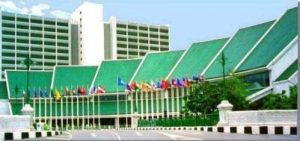 The Economic and Social Commission for Asia and the Pacific (ESCAP) established a steering group to oversee the third regional review and appraisal of the Madrid Plan of Action, in cooperation with the regional offices of the International Labour Organization (ILO), UNFPA and the World Health Organization (WHO), as well as with HelpAge International. Several member States expressed interest in carrying out national consultations to assess such progress, and ESCAP is working closely with all partners concerned to enable those stakeholder meetings to be as inclusive and comprehensive as possibe. In collaboration with a number of partners, ESCAP will provide technical consulting to the countries in the region that requested assistance in undertaking their respective third review and appraisal cycle of the Plan of Action at the national level. A regional intergovernmental meeting for the review of the Plan of Action is envisaged for September 2017, with a preparatory expert meeting to be held in May 2017. A survey was launched in February 2016 to track progress on the implementation of the Plan of Action, with several responses already received, including information on government focal points. Analysis of the survey will be undertaken and published by ESCAP. In addition, a regional expert forum on population ageing was held at ESCAP headquarters on 12 and 13 July 2016, bringing together government focal points on population ageing, development practitioners, experts and civil society. The meeting increased awareness of the key challenges to and opportunities for effectively addressing population ageing and promoting the rights of older persons in the Asia-Pacific region in the context of the third cycle of the review and appraisal of the Plan of Action. Meeting participants further reviewed and shared good practices in addressing long-term care needs and considered policies to formulate a comprehensive framework for the long-term care of older persons in the region. Participants discussed strategies to assess progress at the regional and country levels in the implementation of the Plan of Action, proposing concrete follow-up actions within the framework of the 2030 Agenda for Sustainable Development, including the Sustainable Development Goals. For up-to-date information on the third cycle (MIPAA+15) in ESCAP, click here.
The Economic and Social Commission for Asia and the Pacific (ESCAP) established a steering group to oversee the third regional review and appraisal of the Madrid Plan of Action, in cooperation with the regional offices of the International Labour Organization (ILO), UNFPA and the World Health Organization (WHO), as well as with HelpAge International. Several member States expressed interest in carrying out national consultations to assess such progress, and ESCAP is working closely with all partners concerned to enable those stakeholder meetings to be as inclusive and comprehensive as possibe. In collaboration with a number of partners, ESCAP will provide technical consulting to the countries in the region that requested assistance in undertaking their respective third review and appraisal cycle of the Plan of Action at the national level. A regional intergovernmental meeting for the review of the Plan of Action is envisaged for September 2017, with a preparatory expert meeting to be held in May 2017. A survey was launched in February 2016 to track progress on the implementation of the Plan of Action, with several responses already received, including information on government focal points. Analysis of the survey will be undertaken and published by ESCAP. In addition, a regional expert forum on population ageing was held at ESCAP headquarters on 12 and 13 July 2016, bringing together government focal points on population ageing, development practitioners, experts and civil society. The meeting increased awareness of the key challenges to and opportunities for effectively addressing population ageing and promoting the rights of older persons in the Asia-Pacific region in the context of the third cycle of the review and appraisal of the Plan of Action. Meeting participants further reviewed and shared good practices in addressing long-term care needs and considered policies to formulate a comprehensive framework for the long-term care of older persons in the region. Participants discussed strategies to assess progress at the regional and country levels in the implementation of the Plan of Action, proposing concrete follow-up actions within the framework of the 2030 Agenda for Sustainable Development, including the Sustainable Development Goals. For up-to-date information on the third cycle (MIPAA+15) in ESCAP, click here.
[/accordion-item][accordion clicktoclose="true"][accordion-item title="Economic and Social Commission for Western Asia (ESCWA)"]
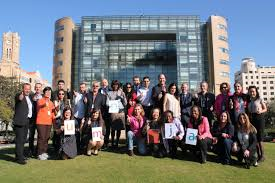 The Economic and Social Commission for Western Asia (ESCWA), in addition to substantive research on issues related to older persons, mostly in the areas of social protection, poverty reduction and conflict and emergency situations, is planning to hold a regional meeting on the third review and appraisal in 2017. The Commission informed its member States of the steps taken and milestones reached in the third regional review and appraisal cycle and requested the nomination of national focal points on ageing. ESCWA, in cooperation with UNFPA, the Centre for Studies on Ageing and a group of experts, is finalizing a questionnaire that addresses the three priority directions of the Madrid Plan of Action. The questionnaire aims to assess the progress made by member States in the implementation of the Plan of Action, the obstacles countries are facing and the remaining gaps in implementation. The questionnaire is expected to be sent to the nominated focal points in member countries by the end of 2016. Analysis of the survey will be undertaken and published by ESCWA and presented at the third regional review meeting. The aim of the meeting is to review progress made in the implementation of the Plan of Action and to identify the main challenges, opportunities and issues of priority for the region. It will provide a platform for countries to present their national experiences, share lessons learned and good practices and reflect on two issues of importance to older persons in the region, namely, social protection and emergency situations. The main findings of the meeting, in particular the priority action areas and good practices identified and the policy responses suggested, will serve as an input to the global review.
The Economic and Social Commission for Western Asia (ESCWA), in addition to substantive research on issues related to older persons, mostly in the areas of social protection, poverty reduction and conflict and emergency situations, is planning to hold a regional meeting on the third review and appraisal in 2017. The Commission informed its member States of the steps taken and milestones reached in the third regional review and appraisal cycle and requested the nomination of national focal points on ageing. ESCWA, in cooperation with UNFPA, the Centre for Studies on Ageing and a group of experts, is finalizing a questionnaire that addresses the three priority directions of the Madrid Plan of Action. The questionnaire aims to assess the progress made by member States in the implementation of the Plan of Action, the obstacles countries are facing and the remaining gaps in implementation. The questionnaire is expected to be sent to the nominated focal points in member countries by the end of 2016. Analysis of the survey will be undertaken and published by ESCWA and presented at the third regional review meeting. The aim of the meeting is to review progress made in the implementation of the Plan of Action and to identify the main challenges, opportunities and issues of priority for the region. It will provide a platform for countries to present their national experiences, share lessons learned and good practices and reflect on two issues of importance to older persons in the region, namely, social protection and emergency situations. The main findings of the meeting, in particular the priority action areas and good practices identified and the policy responses suggested, will serve as an input to the global review.
[/accordion-item] [/accordion]
 Welcome to the United Nations
Welcome to the United Nations
